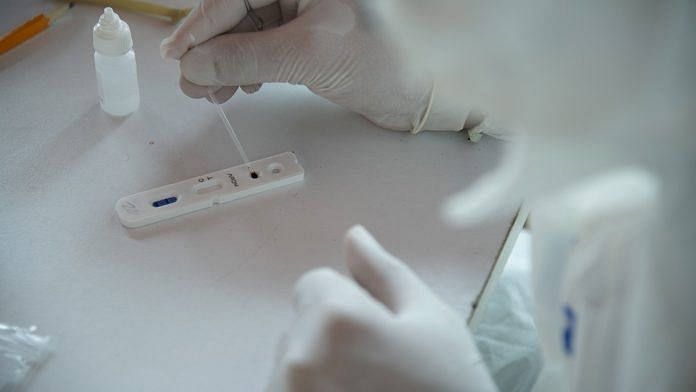New Delhi: While treatments or vaccines against SARS-CoV-2 are still far from reality, scientists are moving closer to understanding the virus and its effect on human bodies every day.
Here are some of the latest research findings on the novel coronavirus.
Hot and humid climate does not stop coronavirus spread
Warmer or more humid climates do not slow the spread of the coronavirus, according to a study published in Science by researchers from the Princeton University.
The team has found that a large number of people are still vulnerable to SARS-CoV-2 and the speed at which the pathogen spreads meant climatic conditions are unlikely to slow the current rate of infection.
Researchers have noted that countries in the tropics and the Southern Hemisphere like Brazil, Ecuador and Australia — where the virus began spreading during the summer season — saw a rapid spread of the infection.
This indicates that warmer conditions will do little to halt the pandemic.
Experience with other viruses also suggests that, without a vaccine or other control measures, Covid-19 is likely to become responsive to seasonal changes after the supply of unexposed hosts is reduced.
Also read: Oxford’s Covid vaccine, being tested on humans in UK, fails to prevent infection in monkeys
Oxygenation machine may help critically-ill Covid-19 patients
An oxygenation machine — which pumps a patient’s blood outside of her or his body, oxygenates and then returns it to the body — can help treat critically-ill Covid-19 patients, a study has suggested.
Researchers at the West Virginia University have found that using such an equipment — called an extracorporeal membrane oxygenation machine (ECMO) — can give lungs and the heart some time to rest and heal.
The ECMO is particularly useful for patients for whom ventilators alone are not sufficient. However, the machine was less helpful in patients who were older and whose heart function had already deteriorated.
The team analysed 32 Covid-19 patients with severely compromised lung function who were supported with ECMO.
Of these, 22 patients (68 per cent) were alive at the end of the study period, although only five had been removed from ECMO.
These five patients had all received a kind of ECMO that supports the lungs, but not the heart. Patients who had lung and heart ECMO support continued to require the machine’s support.
The team, however, noted that patients who got ECMO support for both their heart and lungs were sicker to begin with, and their heart function were more compromised.
Why smokers are more vulnerable to Covid-19
Cigarette smoke triggers the lungs to make more ACE2 (angiotensin-converting enzyme 2), a protein that helps the novel coronavirus enter human cells.
The findings, published in the Developmental Cell, explains why smokers appear to be particularly vulnerable to severe infections.
The analysis also indicates that the change is reversible, suggesting that quitting smoking might reduce the risk of severe coronavirus infection.
Scientists have earlier noted that smokers are significantly more likely than others to develop severe illness in response to infection with SARS-CoV-2.
However, the reason behind this vulnerability of smokers was not well understood.
For the study, the team had compared the gene activity in lungs across different patients. They also studied animals that were exposed to smoke.
They found that mice that had been exposed to smoke in a laboratory, as well as humans who were current smokers, had significant high levels of ACE2.
However, the data showed that ACE2 in the lungs of people who had quit smoking was similar to that of non-smokers.
Little data on ways to support pregnant, lactating women
Excluding pregnant and breastfeeding women from clinical trials of drugs to treat Covid-19 has resulted in a severe lack of data to inform clinical decisions.
An article published in the Breastfeeding Medicine has highlighted that little is known about how drugs like remdesivir can affect pregnant women or new mothers.
Since pregnant and lactating women are not included in clinical trials, little is known about whether the drug transfers into breast milk and reaches the infant’s circulation, the researchers have noted.
The scarcity of data complicates the ability for clinicians to make decisions about whether a lactating woman should be given a potentially life-saving drug.
Completely suspending breastfeeding in mothers infected with Covid-19 could be detrimental to infants, as babies miss out on critical nutrients in human milk.
It is also not known whether antibodies acquired from the mother may protect the infant against acquiring Covid-19.
The researchers have said that rather than excluding pregnant and lactating women from research, they should be protected by it.
Also read: ‘Expired’ polio vaccine given to 50 children of CRPF jawans at Delhi camp, probe ordered



